Election 2015: What Labour, Conservatives and the other parties are promising British voters

The campaign for the 2015 general election is officially under way with the dissolution of Parliament.
All of the parties have hit the campaign trail and are announcing or reiterating key policy promises as they seek to swing what will be one of the closest election contests in recent years.
Polls show Labour and the Conservatives almost neck and neck, with a surge in support filtering down to smaller parties, such as Ukip and the Greens.
As we enter the final race to decide who will govern Britain for the next five years, here is a run-down of the parties and some of their key pledges.
(This list will be kept updated throughout the election.)
Conservatives - (National vote share in 2010: 36.1%)
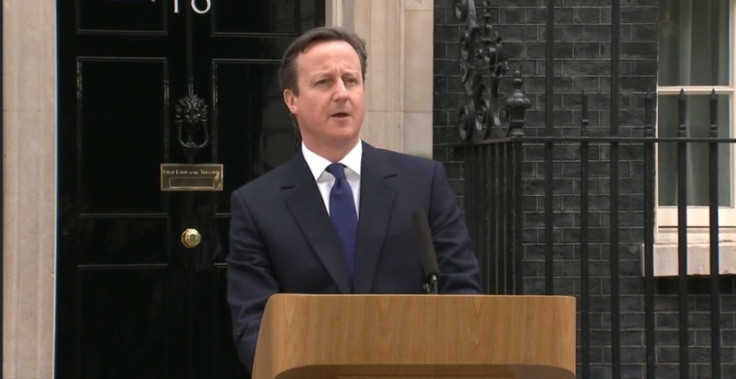
The Tories enter the election on the back of a number of strong economic data points: the economy is growing at the fastest rate in the Western world; the unemployment rate is low and falling; and there is a record number of people in work.
This is the platform on which the party wants to state its case for another five years in government. David Cameron, the Conservative leader, said voters face a "stark choice" between his party and its closest rival, Labour.
He is promising to make work pay and create a sustainable economy, as well as protect funding for key public services such as the NHS and education. Among the Conservatives' key pledges are:
- Erasing the deficit in 2018-19
- Lifting 40p income tax rate to £50,000 threshold
- Cutting the cap on household benefit payments to £23,000
- A referendum on the UK's membership of the EU
- Extending Right to Buy to housing associations in England
- Create two million new jobs
- Renewing the Trident nuclear defence system
- Lifting inheritance tax threshold for married couples to £1m
- Freeze commuter rail fares for five years
Labour - (2010: 29%)
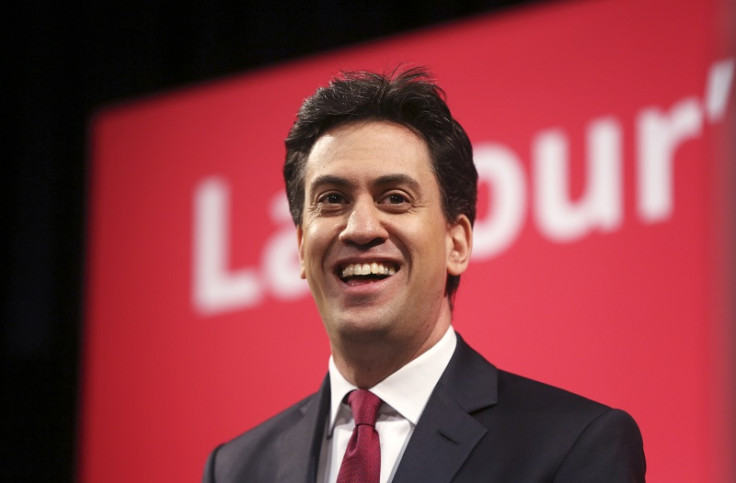
Labour under Ed Miliband has consistently said it thinks the government's austerity cuts have gone too far, too fast and thus been counterproductive by holding back the economy from its potential. The party acknowledges the economic recovery but it argues the few, not the many, are reaping the gains and the vulnerable are bearing the brunt of the cuts.
And it says the jobs market is not as rosy as the headline data suggests, with a blend of temporary work, zero-hours contracts and low pay blighting job seekers. Moreover, it says the NHS is being privatised by the back door and suffering from a number of crises, such as ambulance waiting times. Among Labour's key pledges are:
- Cut the deficit every year and deliver a budget surplus
- A guaranteed job for under-25s out of work for over a year
- Scrap the Spare Room Subsidy, known as the "bedroom tax"
- Add £2.5bn to NHS funding for 20,000 more nurses and 8,000 GPs
- Cut business rates for SMEs
- Trident renewal, though possibly with three rather than four submarines
- Abolish non-dom status
- Ban MPs from holding paid directorships and consultancies
- Give 16 and 17-year-olds the vote
- Replace the House of Lords with an elected Senate
Liberal Democrats - (2010: 23%)
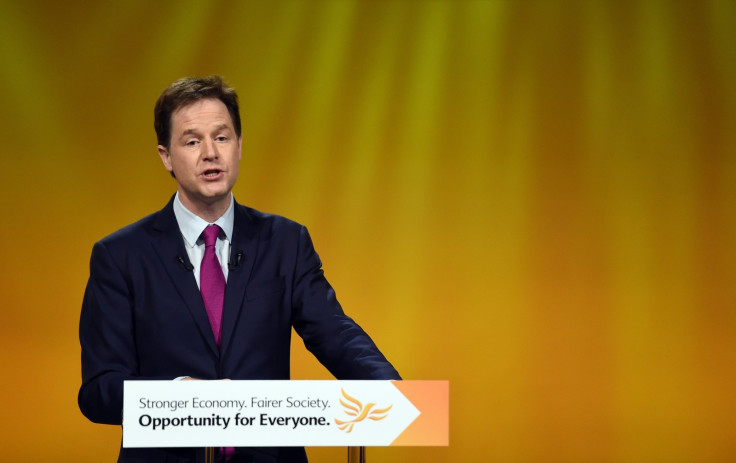
The Liberal Democrats, led by Nick Clegg, have been suffering in the polls because of its uneasy coalition government with the Conservatives. But the party argues not only has it tempered Tory excesses, it has also been the driving force behind the big lifts to the personal allowance, the threshold at which an individual pays income tax, taking 27 million low earners out of income tax altogether.
The Lib Dems says it is the only party holding the reasonable centre ground in British politics, with the Conservatives to the right and Labour to the left. What it wants is a more even blend between tax rises on the richest and spending cuts under the austerity programme to balance the books. And it is focused on improving the education sector. Among its key pledges are:
- Eliminate the deficit more fairly
- Lifting the personal allowance to £12,500
- An extra £2.5bn funding for poorer students through the Pupil Premium
- Increasing the amount of free childcare for two to four-year-olds
- An extra £3.5bn for mental health
- End Trident's continuous at-sea deterrent by cutting number of nuclear submarines
- Raise £14bn from tax rises on the wealthy, as well as tax avoidance crackdowns
Ukip - (2010: 3.1%)
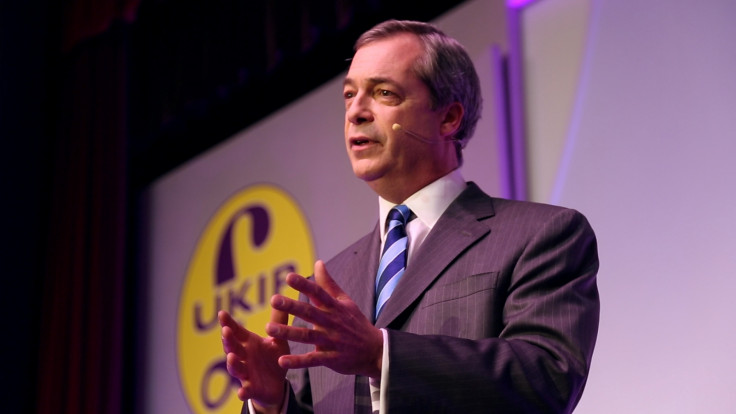
Ukip has experienced a rapid rise in popularity over the past five years, which saw it win the 2014 European Parliament elections in the UK on overall vote share and secure two by-election victories with defectors from the Conservative party.
Anger at Westminster politicians in the wake of the expenses scandal, austerity, mass immigration and the perception that the white working classes are being left behind by globalisation has fuelled this surge.
Ukip, led by Nigel Farage, is staunchly eurosceptic. It is also generally pro-market, despite a lot of its core support coming from former old Labour strongholds. The party argues Westminster is tangled up with red tape, out of touch with ordinary voters and far too meddlesome. So it wants to get into government and sort the mess out. Among Ukip's key policies are:
- A quick referendum on the UK's membership of the EU
- Tighter immigration controls
- Repeal the Human Rights Act and replace it with a British Bill of Rights
- No tax on the minimum wage
- 2,500 new border staff
- Five year moratorium on unskilled migrants
- A 12-mile limit for UK fishermen only around the coastline
Scottish National Party - (2010: 1.7%)
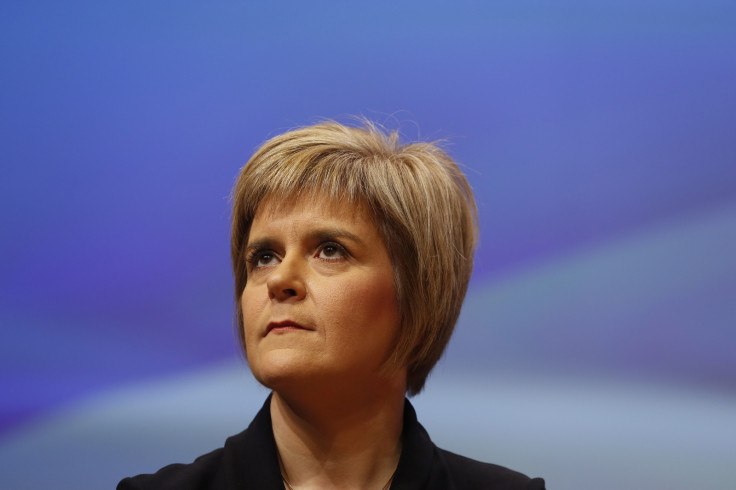
The SNP has had a swell in support thanks to the referendum on Scottish independence, in which 55% of Scots voted to maintain the union against 45% who wanted to go it alone. The independence campaign, led by the SNP, was considered partly successful because Westminster promised to devolve even more powers to Scotland.
As a result, the SNP looks like it may take swathes of Scottish seats from Labour and even hold the balance of power in Westminster in the event of a hung parliament. Led by Nicola Sturgeon, some of the SNP's key policies are:
- Continuing the fight for independence
- Funding for 125,000 more apprenticeships for 16 to 25-year-olds
- Scrapping the Trident nuclear defence system
- Would protect Scotland's NHS budget
- Renewal of Trident nuclear weapons a red line in any Westminster deal with Labour
- Increase minimum wage to £8.70 by 2020
- Keeping "triple lock" on annual pension rise
Green - (2010: 1%)
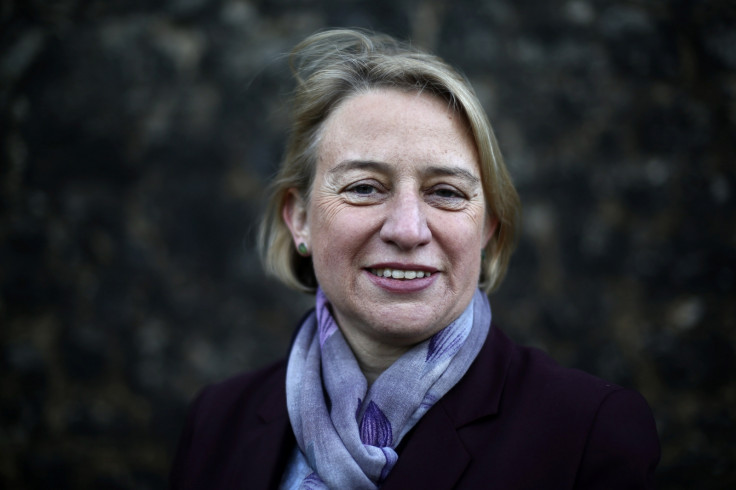
Dubbed the "Ukip of the left", the Green party has experienced its own surge in support under Natalie Bennett as more voters look beyond the big two beasts of Westminster, Labour and the Conservatives.
The Greens, as you would expect, put protecting the climate at the heart of everything it does. It is anti-austerity and has a plan for growing the economy, which it says would close the deficit, by investing heavily in renewable energy. It is also pro-EU (though it wants it reformed and are less than enamoured with the common market) and pro-immigration. Here are some of the Greens' key policies:
- Ending austerity in the form of public spending cuts
- Build 500,000 new social homes by 2020
- £85bn public investment in renewables, flood defences and building insulation while phasing out fossil fuels and nuclear power
- A new wealth tax on the richest 1% and the closure of tax loopholes
- Scrap university tuition fees and cancel all student debt
- Bring academies and free schools back under local authority control
- Renationalise the British railway system
- Ban caging chickens and rabbits in farming
- A ban on fracking in the UK
Democratic Unionist Party - (2010: 0.6%)
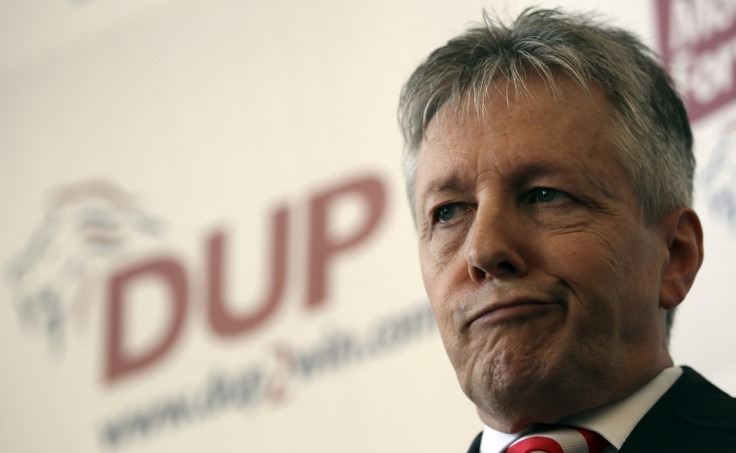
The DUP, led by Peter Robinson, is another of the smaller regional parties that could hold the balance of power in the case of a hung parliament. Robinson has said his party would speak to either Labour and the Tories, depending on who won the most seats, and has not ruled out working with either.
He said his party would seek the best possible settlement it could for Northern Ireland, though he dismissed reports suggesting a figure of £1bn extra in funding would be demanded. One of those demands for DUP support is said be the scrapping of the "bedroom tax" as part of a broader call for fairness in the welfare system. The DUP's key policies include:
- Target a 10% corporation tax rate for NI
- Increase NI exports by 50% over the coming decade
- Cut the size of NI government
- Invest in employment-intensive infrastructure projects
Plaid Cymru - (2010: 0.6%)
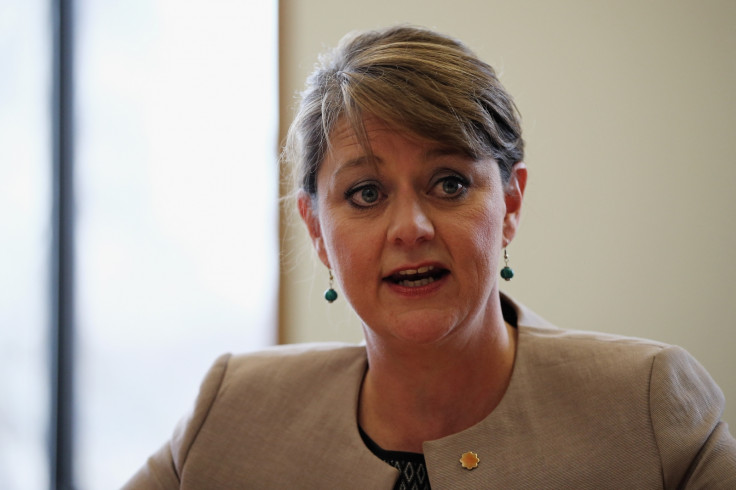
Plaid Cymru is a Welsh nationalist party led by Leanne Wood. It wants more powers for the Welsh Assembly, as Scotland and Northern Ireland have, though it stops short of calling for full independence.
Like the other smaller parties, it may have a say in negotiations to form a government - likely the Labour party, with whom it shares some beliefs - and will try to squeeze out as much as it can, probably in the form of devolution, from those trying to get into Number 10 Downing Street. Among Plaid Cymru's priorities are:
- A living wage for all employees by 2020
- Secure an extra £1.2bn a year for Wales from Westminster
- Scrapping the "bedroom tax"
- Devolution of criminal justice powers
- 1,000 more doctors in the Welsh NHS
- Create 50,000 jobs by ensuring public contracts in Wales awarded to Welsh firms
Sinn Fein - (2010: 0.6%)

Sinn Fein, led by Gerry Adams, is an Irish republican party in Northern Ireland. Because it believes Northern Ireland should rejoin the Republic of Ireland, it abstains from taking its seats in Westminster, though it does stand in general elections. Instead, it focuses on the Northern Ireland Assembly, which has a number of devolved powers from Westminster.
© Copyright IBTimes 2025. All rights reserved.






















